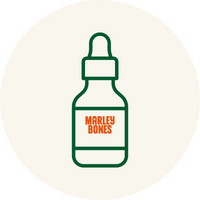Why Do Dogs Dig Their Beds? The Behaviour Behind the Burrow
If you’ve ever watched your dog dig into their bed before lying down, you’ve likely wondered what’s behind this curious ritual. While it may seem quirky, bed-digging is deeply rooted in instinctive canine behaviour that serves both physical and emotional purposes.
From temperature regulation and nesting instincts to scent-marking and emotional expression, dogs dig in their beds for reasons tied to their ancestral survival behaviours. Understanding this natural habit not only gives insight into your dog’s well-being but also helps you manage excessive or destructive digging through training and environmental adjustments.
Understanding The Instinct: Why Dogs Dig Beds
Digging is not a random act—it’s a deeply ingrained behaviour inherited from wild ancestors who dug shallow beds to stay warm, hide food, or create a safe nesting space. Even domesticated dogs still carry these innate behaviours, and their bed becomes the canvas.
Key reasons dogs dig into their beds include:
- Creating comfort and security
- Regulating temperature
- Marking their scent or territory
- Expressing excitement or boredom
- Practising instinctive behaviours like hiding or nesting
This action, while natural, can become problematic if it turns excessive or destructive, especially if it's driven by stress, anxiety, or a lack of stimulation.

Temperature Regulation and Physical Comfort
One of the most common reasons dogs dig in their beds is to manage their body temperature. This is a deeply ingrained survival strategy:
- Cooling Off: Dogs may dig to uncover cooler layers of bedding, especially during warmer months.
- Warming Up: Digging into blankets or plush beds creates a pocket of insulation to retain body heat, making it easier to get cosy when it’s cold.
In both cases, your dog is simply trying to feel more physically comfortable and secure in their environment
Behavioural Training: Shaping the Habit
If bed-digging becomes excessive or begins to damage furniture or bedding, behavioural training and redirection can help.
- Designated Digging Zones: Set up an area with sand, shredded paper, or blankets where digging is allowed. Use positive reinforcement to redirect the habit.
- Hide-and-Seek Instincts: Dogs often dig to “bury” toys or food. Use toy boxes or hidden treat spots to satisfy this drive in a controlled way.
- Prevent Scent Marking: Dogs dig to mark their territory. Regularly wash their bedding to reduce scent retention, and offer comfort items like an old t-shirt with your scent instead.
These simple steps help reduce destructive tendencies while preserving natural behaviours.
From Puppies to Adults: Comfort and Preparation
Bed-digging starts young. Puppies often mimic their mother’s nesting behaviour, pawing at blankets or bedding to prepare their sleep space.
As they grow, this behaviour evolves into a ritual of comfort-seeking. Dogs shape their bedding to fit their body and sleeping position, often leaving their scent behind to feel safe and at home.
This behaviour is especially pronounced in new or stressful environments, where familiar smells and textures help soothe anxiety.

Emotional Drivers: Boredom, Anxiety, and Excitement
Not all digging is about comfort—some of it is emotional. Understanding your dog’s mental state is key to managing the behaviour.
Anxiety or Boredom: Dogs may dig as a coping mechanism when feeling anxious or under-stimulated. Look for signs like pacing, whining, or excessive barking. Providing mental stimulation, exercise, and interactive toys can ease this behaviour.
Excitement: Some dogs dig when they’re excited—anticipating a walk, meal, or playtime. In this case, digging is an outlet for excess energy. Use structured play, short training sessions, or puzzle feeders to channel their enthusiasm more productively.
When To Be Concerned
While digging is natural, excessive or compulsive digging can signal deeper issues like separation anxiety, lack of enrichment, or physical discomfort. If the behaviour escalates or comes with other changes (e.g., appetite, lethargy, increased vocalisation), consult your vet or a certified behaviourist.
The Final Woof
Digging in their bed is a natural and normal behaviour for dogs, rooted in comfort, instinct, and emotion. By understanding the reasons behind it, you can create an environment that supports your dog’s needs without letting the behaviour become destructive.
Offer designated digging areas, maintain consistent routines, and provide physical and emotional enrichment. If your dog digs before bed, they’re likely just getting comfortable—or expressing a little excitement before rest.
By recognising and respecting their instinctive needs, you support not only their comfort but also their emotional well-being.












